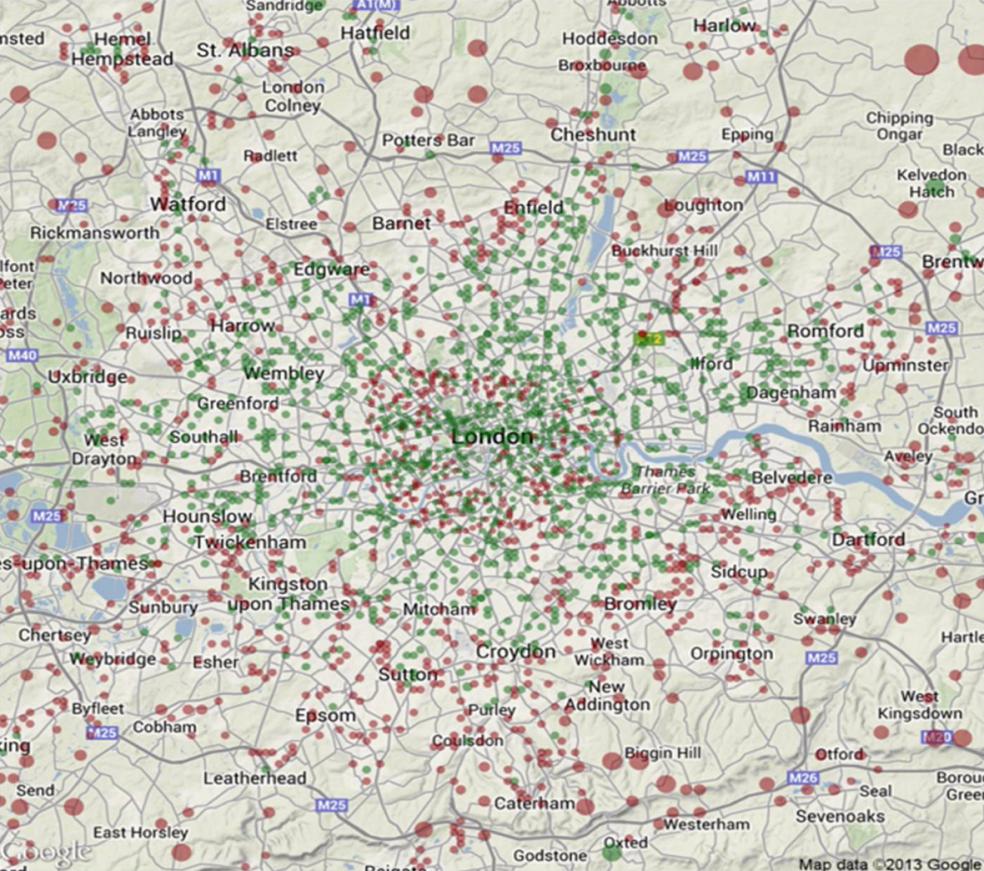This Empirical Paper was written by Andrey Bogomolov, Bruno Lepri, Jacopo Staiano, Emmanuel Letouzé, Nuria Oliver, Alex ‘Sandy’ Pentland, and Fabio Pianesi, in collaboration with the World Bank Group, BKF, and Telefónica.
Using a multimodal, data-driven, and place-centric approach, researchers were able to predict high- and low-concentrated crime hotspots throughout London. The findings, published in September 2015, make predictions using methodologies that “capture(s) the dynamics of a place rather than making extrapolations from previous crime histories.”
This paper highlights the potential societal benefits derived from big data applications with a focus on citizen safety and crime prevention. Authors detail a case study tackling the problem of crime hotspot classification, that is, the classification of which areas in a city are more likely to witness crimes based on past data. In the proposed approach demographic information is used along with human mobility characteristics as derived from anonymized and aggregated mobile network data. The findings support the hypothesis that aggregated human behavioral data captured from the mobile network infrastructure with basic demographic information can be used to predict crime.

